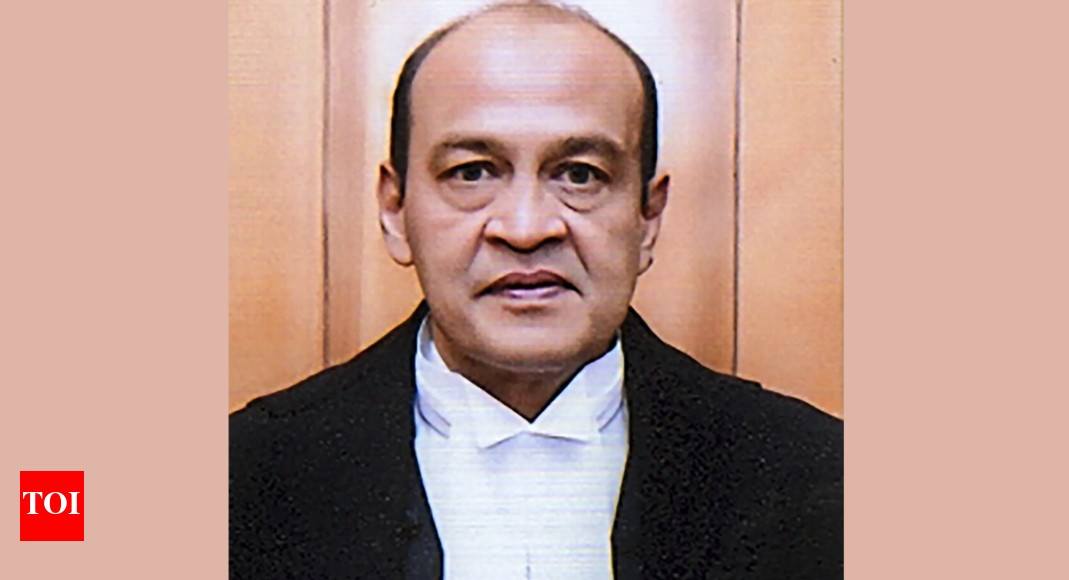Politics
Motion to Remove Justice Varma Submitted in Parliament Amid Controversy

A motion has been submitted in the Indian Parliament seeking the removal of Justice Yashwant Varma from the Allahabad High Court. This action stems from a controversy involving allegations of cash being found in his residence. The motion is set to be considered by the Lok Sabha, while a similar motion in the Rajya Sabha faced complications, ultimately leading to the resignation of former Vice-President Jagdeep Dhankhar.
The controversy surrounding Justice Varma has raised significant concerns among lawmakers. Kiren Rijiju, the Union Minister for Law and Justice, confirmed that a unanimous decision had been reached regarding the motion for Varma’s removal. This development highlights the growing scrutiny of judicial appointments in India, reflecting broader issues within the legal system.
Background of the Controversy
The allegations against Justice Varma surfaced when reports indicated that a substantial amount of cash was discovered in his home. The specifics of the allegations suggest potential misconduct, prompting lawmakers to take action. Following the initial acceptance of the motion by Jagdeep Dhankhar, it was later ruled as non-compliant, which contributed to his decision to resign.
This incident has sparked a debate on the accountability of judges in India and the mechanisms in place for their removal. The Rajya Sabha’s handling of the motion has drawn attention to procedural matters within the legislative process, raising questions about the balance of power between the executive and the judiciary.
Implications for the Judiciary
The push for Justice Varma’s removal is part of a larger discussion regarding judicial integrity and transparency in India. Lawmakers are increasingly vocal about the need for rigorous standards in the appointment and conduct of judges. The outcome of the Lok Sabha’s consideration of the motion could set a precedent for future cases involving judicial accountability.
As this situation unfolds, it remains to be seen how it will affect public trust in the judiciary and the legal system as a whole. The implications of this motion extend beyond Justice Varma, potentially influencing how judicial misconduct is perceived and addressed in India.
The political landscape surrounding this issue is dynamic and may evolve as more information emerges. Lawmakers and legal experts alike are closely watching the developments, which could have lasting effects on the relationship between different branches of government and the judiciary in India.
-

 World5 months ago
World5 months agoSBI Announces QIP Floor Price at ₹811.05 Per Share
-

 Lifestyle5 months ago
Lifestyle5 months agoCept Unveils ₹3.1 Crore Urban Mobility Plan for Sustainable Growth
-

 Science4 months ago
Science4 months agoNew Blood Group Discovered in South Indian Woman at Rotary Centre
-

 World5 months ago
World5 months agoTorrential Rains Cause Flash Flooding in New York and New Jersey
-

 Top Stories5 months ago
Top Stories5 months agoKonkani Cultural Organisation to Host Pearl Jubilee in Abu Dhabi
-

 Sports4 months ago
Sports4 months agoBroad Advocates for Bowling Change Ahead of Final Test Against India
-

 Science5 months ago
Science5 months agoNothing Headphone 1 Review: A Bold Contender in Audio Design
-

 Top Stories5 months ago
Top Stories5 months agoAir India Crash Investigation Highlights Boeing Fuel Switch Concerns
-

 Business5 months ago
Business5 months agoIndian Stock Market Rebounds: Sensex and Nifty Rise After Four-Day Decline
-

 Sports4 months ago
Sports4 months agoCristian Totti Retires at 19: Pressure of Fame Takes Toll
-

 Politics5 months ago
Politics5 months agoAbandoned Doberman Finds New Home After Journey to Prague
-

 Top Stories5 months ago
Top Stories5 months agoPatna Bank Manager Abhishek Varun Found Dead in Well









